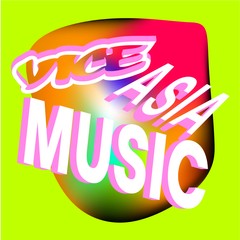Last year saw the return of live music in the Philippines, and with it came the fight for concert tickets.For a time, online purchasing became the sole and standard procedure in the country’s ticketing infrastructure in adherence to pandemic protocols. It goes a little something like this: Fans wait for their turn online with nothing but a queue number blinking on the screen that signals how close they are to entering the ticketing portal. Once inside, they’re given around 10 minutes to select an available seat upon access to the event seating plan.
Advertisement
Few were quick to adapt to this new system. This included 30-year-old government employee Jai, who was swift to offer help to whoever needed it once she figured it out. What started out as a kind gesture to assist strangers who lacked the skills and knowledge to secure tickets turned into a business venture at her friend’s encouragement. Since launching her service in May, Jai has helped over 300 fans get a hold of concert and meet-and-greet tickets, 12 of which are for the upcoming Harry Styles Love On Tour concert. Now she’s part of a growing industry for fans, by fans, called ticket purchasing assistance (TPA).You’ll have seen it on Twitter. For a fixed price, someone will virtually line up to buy tickets for you. The price range is patterned after the venue seats with its tiered pricing, but this service can cost anywhere from 100 Philippine pesos ($2) to 2,000 Philippine pesos ($36) per ticket. The more popular the artist, the more expensive the fee. You’d be lucky to find someone selling at 300 Philippine pesos ($5) to 800 Philippine pesos ($15) per ticket who isn’t already booked for someone else. The practice isn’t just confined to Western superstars or K-pop, either. Local university competitions are also popular events, especially during peak basketball seasons.
Advertisement
There’s no pinpointing the exact moment when TPA started. The Philippines is certainly not the first to turn it into a business, but the level of demand in the country is one of the highest in the world. In December, K-pop group ENHYPEN’s online ticket selling had over 150,000 people in line for a concert venue that only seats 15,000. That’s how people like Jai rise to prominence—fans pay to be part of the lucky 15,000.
ENHYPEN performs at Radio City Music Hall on Oct. 15, 2022 in New York City. Photo: Astrida Valigorsky, Getty Images
“At first, it was an informal thing. Friends or friends of friends wanted to seek help. Sometimes they have extra slots for pre-selling, or bought extra tickets because they panicked,” K-pop multi-stan MJ observed. “But then it started to become an actual paid service.”Prior to the emergence of TPA, people turned to scalpers if they failed to secure a concert ticket. In countries like the Philippines, where fan culture is everything, it’s serious business. It’s common for scalpers to resell concert tickets twice or thrice the original cost, and just as common for fans to buy into the scheme. For BLACKPINK’s upcoming concert in the Philippines, one scalper claimed that they managed to resell a VIP Soundcheck Package priced at 19,450 Philippine pesos ($354) for a whopping 80,000 Philippine pesos ($1,460). The Twitter account behind the supposed sale has since been suspended. The claim cannot be verified but still illustrates just how in-demand these tickets are.
Advertisement
For many fans, the assistance fee is a relatively small price to pay in exchange for convenience. It’s a welcome help for first-time buyers and working people who don’t have the privilege of taking a day off to buy tickets on a weekday. TPA has paved a new way for fans to secure a ticket from a high-demand concert without having to resort to the more foul sport of scalping. The service is swift, transparent, and straightforward for the reason that its entire business model is contingent on these elements. The stress that comes with the whole process is enough to want to pay someone else to take over. How tickets are secured is entirely up to the TPA in charge. There’s no secret how-to in winning the system, Jai said, only patience, diligence, and a whole lot of luck. On D-day, TPAs would have five to six browsers open in a virtual brawl for limited slots. The competition? Fans and other TPAs who are just as frantic to snap up the coveted seats. In the event that a ticket isn’t secured, they would refund the client in half or full. Unless they’re working with an insider, no TPA can promise a 100 percent success rate. As pandemic restrictions eased, the option to purchase tickets in physical ticketing booths was brought back. Among those who bit the bullet were friends Franchesca Rodriguez, Irish Pascual, Josefina Trinidad, Nicole Pacardo, and Pamela Santos, who opted to camp out for 17 hours to buy tickets for SEVENTEEN’s Be the Sun concert in Manila, instead of crowding with the majority online.
Advertisement
In the process, the group came to understand how lucky they were to be able to invest this much time and effort to secure tickets. Others don’t have such an option. This realization gave rise to Assixtance, a TPA account they started. Although most TPA services are conducted within the four corners of the internet, they also provide camp-out services, which only costs 100 Philippine pesos ($2) more than online queuing. When asked why they chose to provide this onsite service, they told VICE: “We offer both ways so clients can have an option on what they think has more chances to secure [a ticket].” It comes as no surprise then that an overwhelming majority of TPAs are fans who share the same frustrations of ticket-buying themselves. Having this specific kind of lived experience as a fan enables TPAs to be more empathetic, as opposed to most scalpers’ “just-business” mindset. For instance, clients are free to select when they want to pay for the assistance (pre- or post-ticket purchase), where they want to be seated in the venue (varied price per tier), and how they want to receive the ticket (for shipment or meet-up). Some TPAs, like Jai, would even allow clients to “upgrade” their seating for free after she has already secured a lower-tier ticket, which leaves the TPA the burden of an extra ticket to sell. “What we had in mind when we started this was just really to help,” the friends behind Assixtance said. “We are fans ourselves, we know how disheartening it is to see scalpers profiting from fans who want to see their idols.”
Advertisement
TPA has since evolved as a legitimate form of service in fan culture, but others continue to see it as nothing more than a fresh rebrand for scalping. The suspicion is warranted, given that the motivation of money is where the two practices overlap. Both are profitable ventures. Consider how in just a span of three months, Assixtance sold 44 tickets to 24 clients for three K-pop concerts: SEVENTEEN’s Be the Sun, BLACKPINK’s Born Pink, and ENHYPEN’s Manifesto. All that from a Twitter account with less than 100 followers.Taking claim on several tickets at a time is precisely why other fans remain skeptical of TPAs. Take Nicole for example, a 23-year-old fresh graduate by day, a K-pop multi-stan at night. Nicole is no stranger to the ticketing process, but know-how is no match against a faster internet connection or more devices to queue from. Of the four times Nicole took part in ticket-selling events, she failed to snag her priority seats thrice, even if she had what she thought was a low queue number. Granted, TPAs would only buy select tickets upon the client’s request, but they still take up a significant amount of space in the physical and virtual line when they’re in the hundreds, leaving less room for other fans to get into the system. In worse cases, TPAs enter the system without a client.“When ticket assistants fail to seek potential buyers before purchasing, some of them who have cash on-hand may still purchase tickets and basically become traditional scalpers,” Nicole said. “There’s a fine line between the two and I don’t support either.”
Advertisement
However, the propensity to scalp is the least of a client’s worries. Since most platforms have a non-transferrable policy for tickets, it has become protocol for TPAs to log into a client’s account and gain access to their bank accounts, credit card numbers, or mobile wallets for ease of transaction. For MJ, the risks outweigh the benefits. “It’s taken in the guise of a benevolent service, when it’s just as unregulated as scalpers. What if the person is a scammer? You’re out of money even before a concert starts.” Fortunately, there are official fan clubs that provide fans with some guidance to protect themselves from abusive practices. With almost 150,000 followers and counting, the team behind @BLACKPINK_PH said the only acceptable TPAs are those that offer “help with a minimal fee.” They recommend a fee not beyond 20 percent of the actual ticket price, should a fan find it necessary to hire a TPA. Surpassing this benchmark is already stepping into overcharging, and therefore scalper-like territory. “If it goes beyond 40 to 50 percent of the ticket price, that’s actually scalping. That’s too much for what ‘assistance’ you’re calling,” a representative from @BLACKPINK_PH told VICE. “We cannot really post what’s the better price as long as it’s reasonable enough to pay for the effort of that person. It’s the effort of lining up, of waking up early.”Beyond the issue of inflated prices, there is also a striking implication that comes with skipping the line—the lack of suffering a true fan would and should experience to prove themselves worthy of a concert ticket. TPA challenges this norm in stan culture, perhaps more than what most are willing to acknowledge.“It’s changing the fan culture of romanticizing the camping part of securing a ticket. Some K-pop fans measure other fans’ love for their idols by how much time they are willing to sacrifice,” the friends behind Assixtance said. “This should not be the case because we have different circumstances in life. This is why we hope TPA is here to stay… It shapes a culture where fans are not obliged to sacrifice something for the sake of being considered a real fan.”Love it or hate it, the growing popularity of TPA is a microcosm of everything that can be improved within the live music industry, starting with ticket selling. Gone are the days of fans entertaining scalpers because there’s no other choice but to. With TPA in the picture, beggars can be choosers. Even then, it’s a gamble—one that TPAs are more than willing to take for you.Follow Micah Avry Guiao on Instagram.

